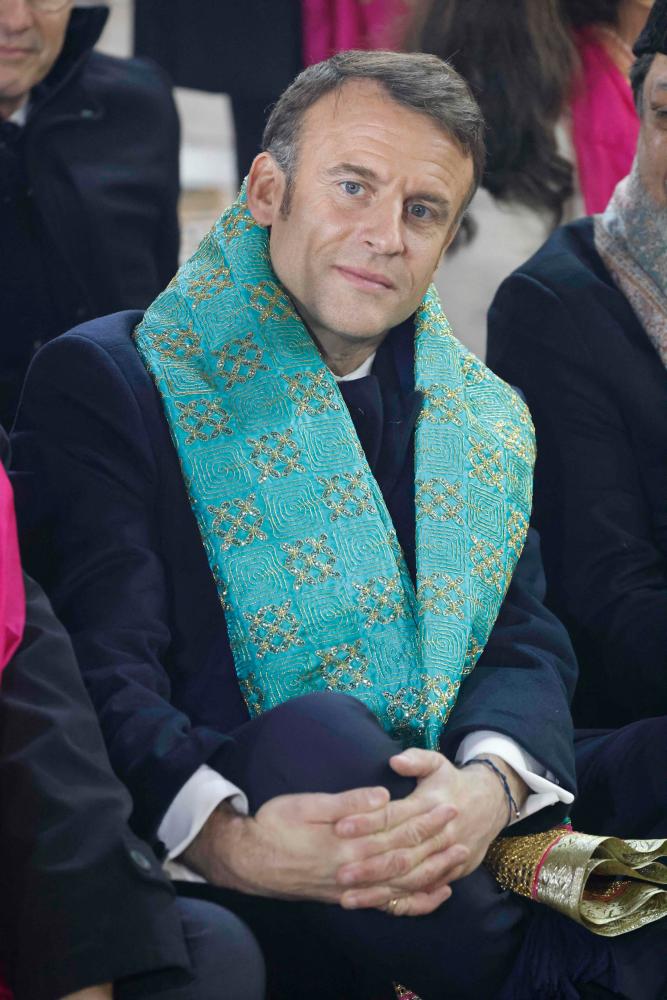PARIS: French President Emmanuel Macron, during his visit to New Delhi earlier this week, signed the controversial law on immigration that tightens naturalisation and deportation rules, the French government said in its Official Journal on Saturday.
On Thursday, the French Constitutional Council rejected more than one-third of the original text of the law it found to be in breach of the constitution, reported Sputnik.
“Having regard to the January 25, 2024 decision of the Constitutional Council ... the president of the Republic promulgates the law,“ the entry in the journal read.
Macron signed the law while on a visit in New Delhi from Thursday to Friday, the statement read.
The parts of the law scrapped by the constitutional watchdog included the article tightening the rules for entry on a family visa, the obligation for non-EU students to leave the country, as well as the introduction of “migration quotas.” They also included criminal penalties for illegal stay in France, differences in access to social security depending on the type of professional employment and length of stay in the country, as well as changes in the right to French citizenship by birth in the country’s territory, as inconsistent with current French legislation.
French Interior Minister Gerald Darmanin, one of the key authors of the migration reform, said following the council’s decision that Macron would still sign the abridged law. On Friday, the minister gathered all the prefects and ordered them to start enforcing the law after immediately after it is signed.
The law, approved by both chambers of French parliament on December 19 after much deliberation, caused a massive outcry both among the public and French politicians. The then Health Minister Aurelien Rousseau resigned on December 20, while several French regions governed by left-wing politicians said they would not implement the provisions of the new law.
The law on asylum and migration includes many measures to tighten control over the deportation of undocumented migrants and revocation of residence permits from those committing crimes. The government described it as the “toughest” law ever on immigration. - Bernama, Sputnik









